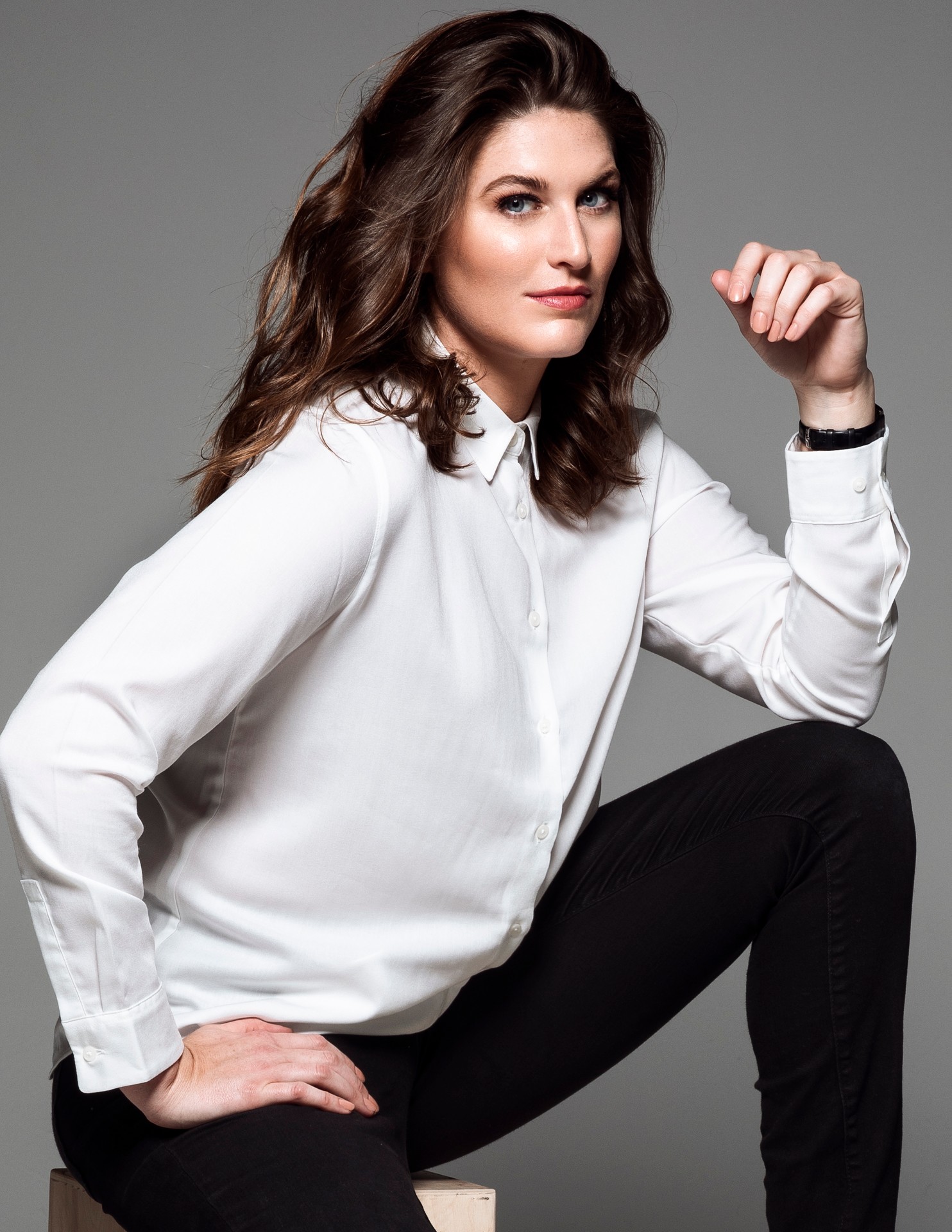

Today we’d like to introduce you to Emelie Claxton.
Hi Emelie, we’re thrilled to have a chance to learn your story today. So, before we get into specifics, maybe you can briefly walk us through how you got to where you are today?
I am a genre-hopping writer and director based in Los Angeles. My love of filmmaking began at the end of a VHS tape. When I was little, I became obsessed with the “Making Of” featurettes at the end of Disney movies – Bambi is one that stuck out, and I’d sit on the floor, wide-eyed, watching animators studying real deer and painting trees on panes of glass to create depth in the forest. It was this big reveal: these movies you love so much? People make them. It’s a job. That window into the world of filmmaking captivated me, and I immediately started making films of my own.
Luckily, I was the eldest of four, so I had a small band of performers and crew in my younger siblings and the neighborhood kids. I was always filming with the family handicam – to the point where I know it got annoying, but I could not be stopped. I think being an older sister to three amazing people has defined so much of my personality, and gave me an unearned confidence boost from a young age that’s only snowballed from there.
When I reached film school at NYU Tisch, the world cracked open. I know there’s a lot of debate about film school being worth it or not, but for me, it corralled my flailing and gave me direction, a massive bank of knowledge to pull from, and stuck me right in the middle of an amazing community of filmmakers, some of whom I still collaborate with to this day.
Now, I’m living in LA, balancing my work as a commercial director at an advertising agency with narrative filmmaking. My projects run from comedy to horror and everything in between. I’ve joked in the past that my brand is “uncomfortable women,” and that seems to hold across genres and mediums. I find myself pulled to write about addiction, family power dynamics, and heroes who discover that they might actually be villains.
Would you say it’s been a smooth road, and if not what are some of the biggest challenges you’ve faced along the way?
I feel like with any creative career, struggle is inescapable, so you have to make friends with it. I’ve thought a lot about how the process of writing feels a lot like training for a marathon – you have to work at it every single day, alone. It’s painful and repetitive and you spend perhaps too much time with your own thoughts, but after months – let’s be honest, years – of sticking with it, you have all this strength and experience built up, and you’ve become a better writer/runner in these tiny increments over time. The biggest struggle is staying focused on a goal that isn’t super tangible. You don’t know how fast you’ll run that race, what the weather will be like, if you’ll get injured and have to cancel. Similarly, you can’t know the impact of each piece of writing or directing you produce. You have to continue to invest in yourself without measurable returns, over a long period of time, and that can feel insane.
I’ve heard more established writers talk about living a life that protects your artistic spirit. I love this reframing of the “starving artist” idea – instead, how do you structure your life so that you have the time and energy it takes to create? How do you make sure you have the money to survive in these insane times, but also the energy to keep pushing toward your dreams? Another marathon parallel (and then I’ll stop) that feels obvious, but it really matters what food you put in your body, how much sleep you get, how much you honor your routine. For me it’s a huge challenge to balance input (books, movies, video games) with output. I hate those moments when someone tries to talk about their favorite movie or show and I haven’t seen it, but I’m trying to embrace them, and accept that sometimes I need to turn off all the inputs to focus on output for a while. We only have so many hours in a day.
Thanks for sharing that. So, maybe next you can tell us a bit more about your work?
Since graduating film school, I’ve tried to keep a steady clip of one short film a year, varying in genre and scale. During the pandemic, I stretched into the comedy space, a shield against the darkness that helped me reach out to the wider world in an isolated time. I’ve done shorts about roombas finding love, astrologist hipsters finding Jesus, a woman trapped in a vintage beauty ad and a Mean Girl trying to do a Gone Girl. I’ve also done award-winning work in the commercial space, including social spots for Pocky, stop-motion spots for Homes.com, and automotive work for Honda.
My most recent film is a 30-minute comedy called “Doggone,” starring the hilarious Jona Xiao (whom you’ll recognize from Eyes of Wakanda, Hightown, and The Flash). It’s about a struggling artist who takes a dogsitting gig to pay rent, but when the Pomeranian in her care is dognapped, she must race across Los Angeles to rescue him before his owner returns. It’s my most ambitious narrative project to date, and I poured so much heart and years of work into this film. I was told time and time again that a 30-minute comedy would be too difficult for any fest to program, so I’m extremely proud that it was able to break through that barrier and not only screen at festivals across the country, including Dances With Films and the New York Indie Shorts Awards, but even bring home the honor of Best Narrative Short at the Winter Park Film Festival, while the script made Second Rounder at the Austin Film Festival. I really wanted to show a character transformation and make a comedy with real emotional impact, so seeing standing ovations and viewers in tears at the final scene proved to me that keeping it at 30 minutes was the right thing to do. Now that it has finished its festival run, I’m excited to release it online to an even larger audience.
My main focus now is directing my first feature film, a horror project that draws on my experience of having people close to me suffer from substance abuse. To me, there is nothing more terrifying than watching someone you love destroy themselves, and confronting your own powerlessness in the face of addiction. I’m currently looking for producers and talent to partner with (this is a shameless plug).
I also just completed a brand-new short film called “The Crash Out,” which deals with women’s health and complicated sister dynamics, and I’m developing a romance novel and an action-adventure video game.
How do you define success?
For me, success isn’t one specific point in a timeline, like an award or milestone, because the second you pass those, there’s always another on the horizon. I know to be good at this, you have to first be really bad at it. The “being,” the working, is the key, and the goal is the life itself. If I’m writing and directing, surrounded by other artists, building my network, honing my skills, stretching my limits, and constantly pushing towards a new creative goal, that feels like success. I want to be a part of this industry for the rest of my life, so I always try my hardest to make each project additive for everyone it touches. I want to secure budgets that get my crew the resources they need and the rates they deserve, I want the actors to feel like they’re able to expand their skills and communicate their needs and their perspective on the work, I want the final piece to exist as a quality showcase for everyone who worked on it so they can build their reels and networks for the next job, and I want audiences to feel seen and respected.
This industry is a living thing, and we need to make sure it’s sustainable. We artists – who often must work for “exposure,” and must constantly prove that we can do the job before we’re given the permission or resources to do it, need to remember that our skill set has value. There is something in our DNA that values storytelling, and that’s not a trend, it’s integral to who we are as a species. It’s how we communicate, how we form groups, pass down knowledge, and explore the biggest, scariest questions. The work we do, and the way we do it, matter. So in a sense, “success,” as a filmmaker, has everything to do with connection. My greatest successes have been pushing past all the self-doubt, the shame, the long nights and early mornings, the social anxiety and the fear of vulnerability to finish projects, accept their shortcomings and unique beauty, and put them out into the world so that other people can find them. It’s all about opening yourself up and reaching out.
Contact Info:
- Website: https://www.emelieclaxton.com
- Instagram: @emelie.claxton
- LinkedIn: https://www.linkedin.com/in/emelie-claxton-1b213476
- Youtube: https://www.youtube.com/@emelieclaxton
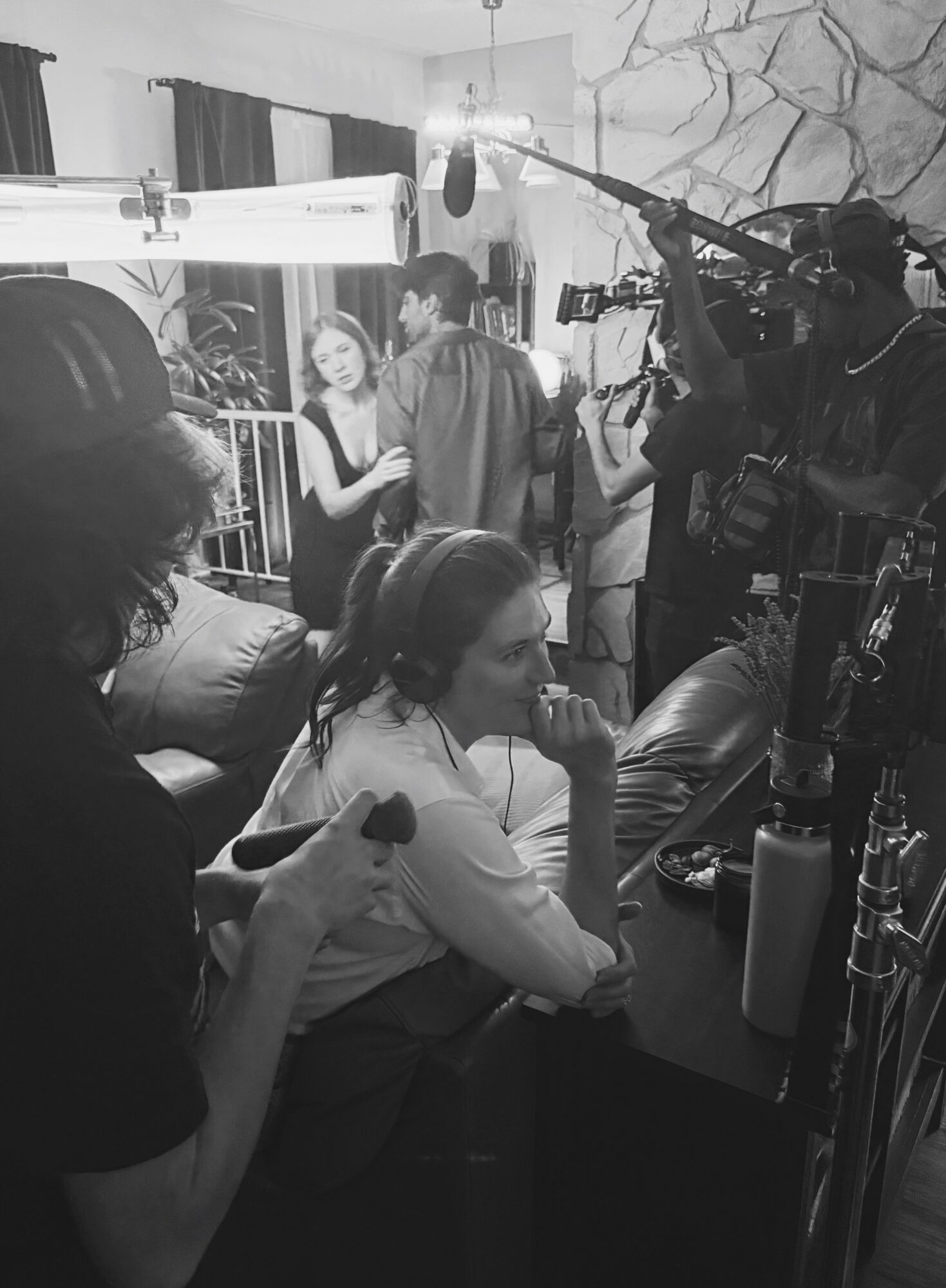
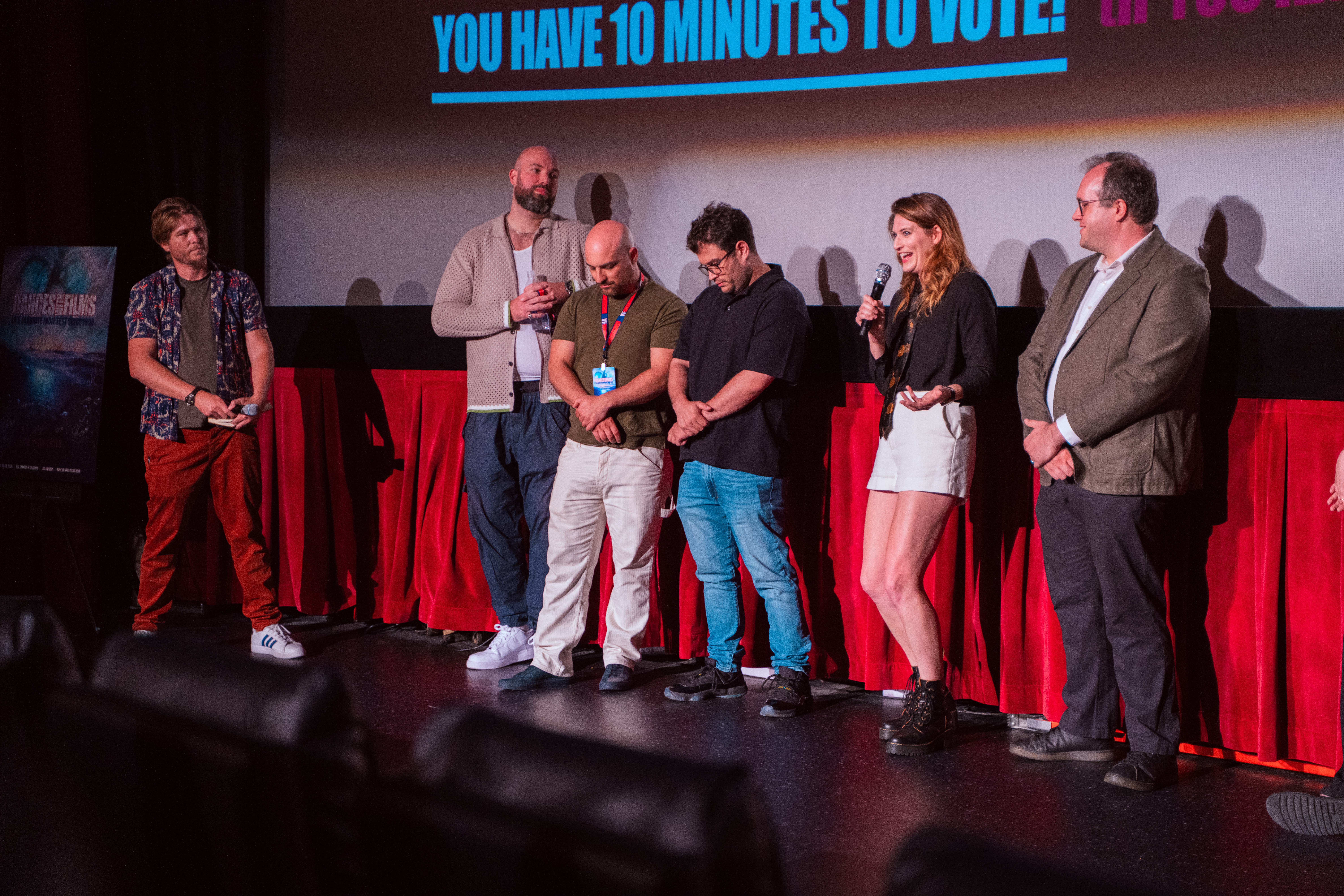
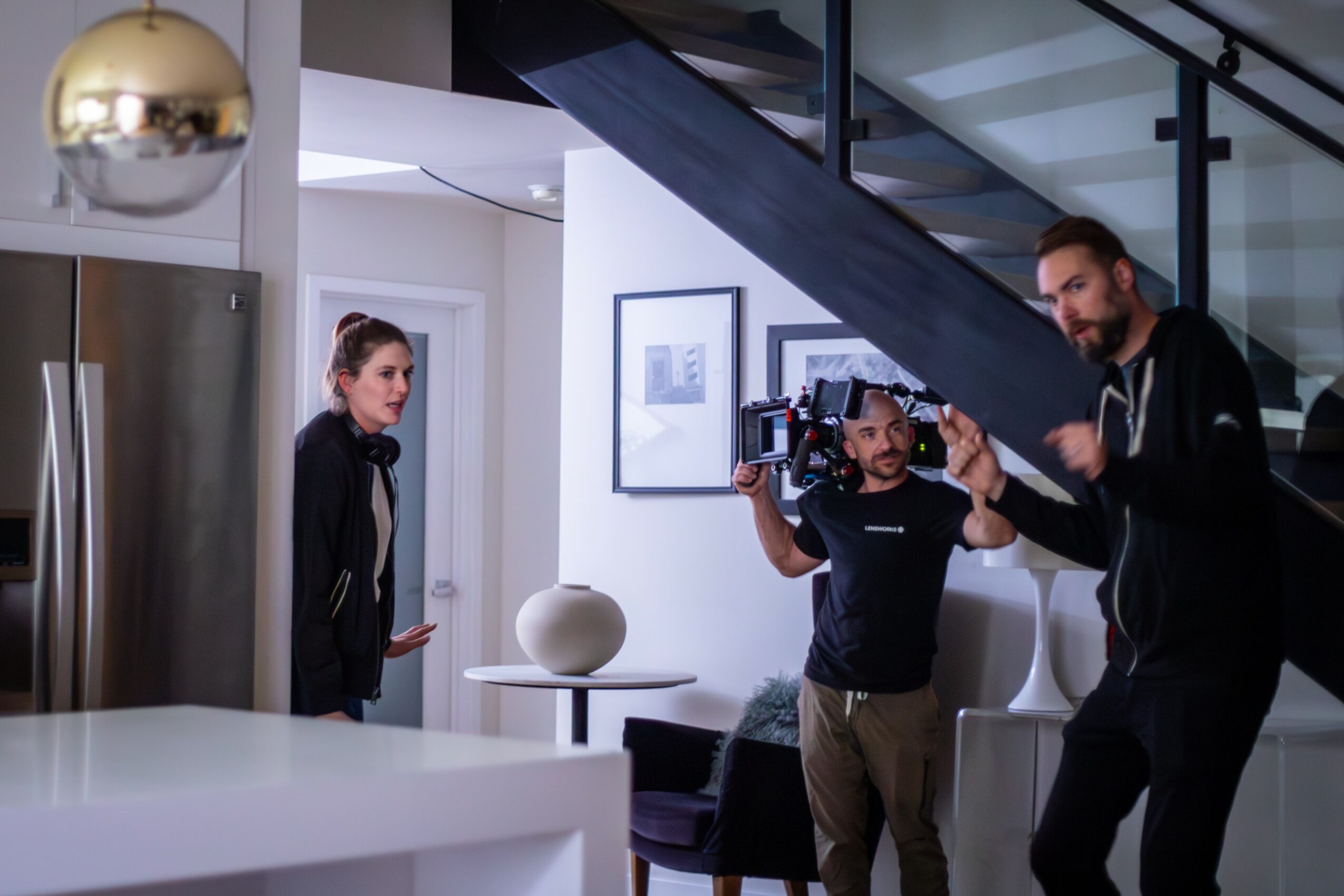
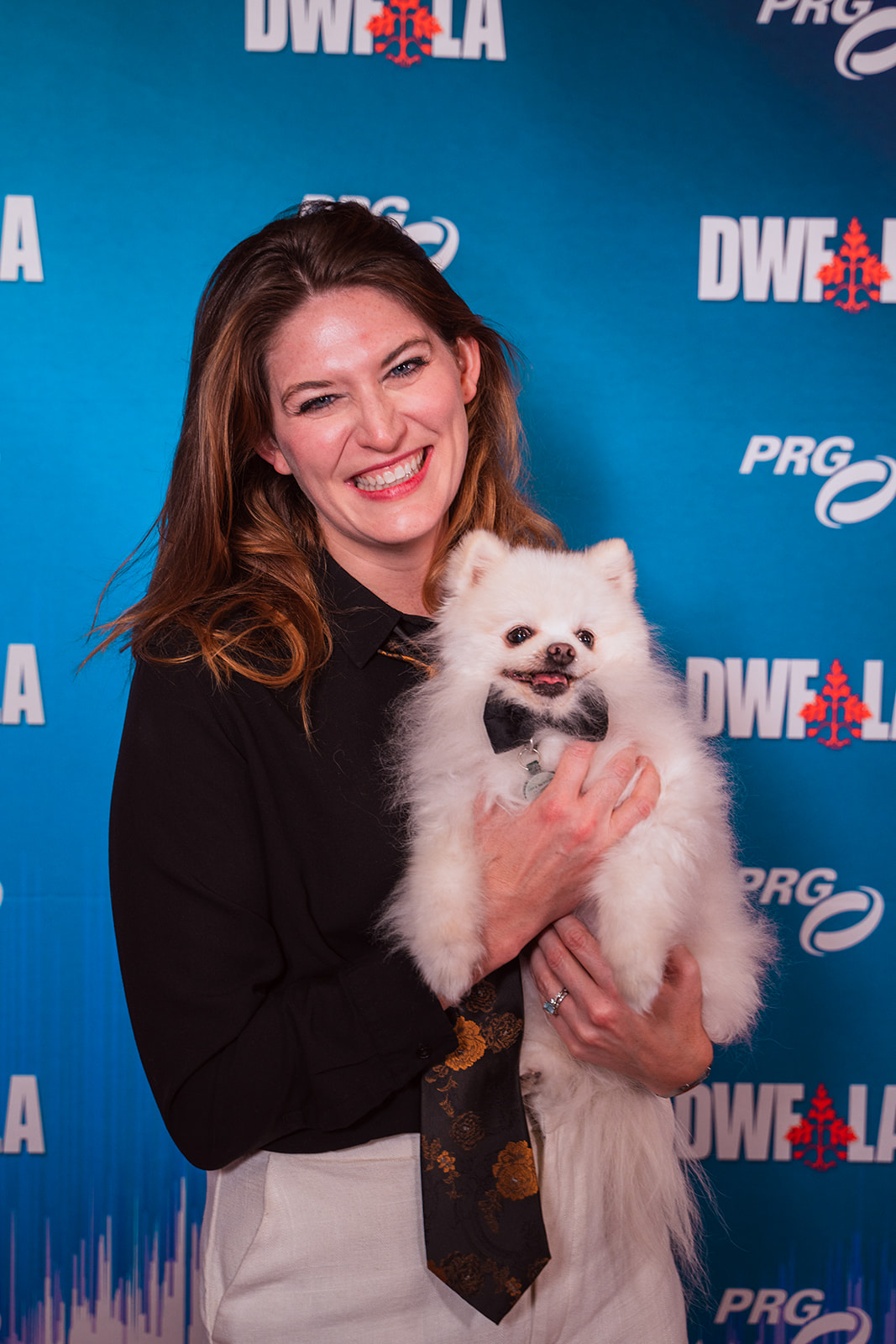
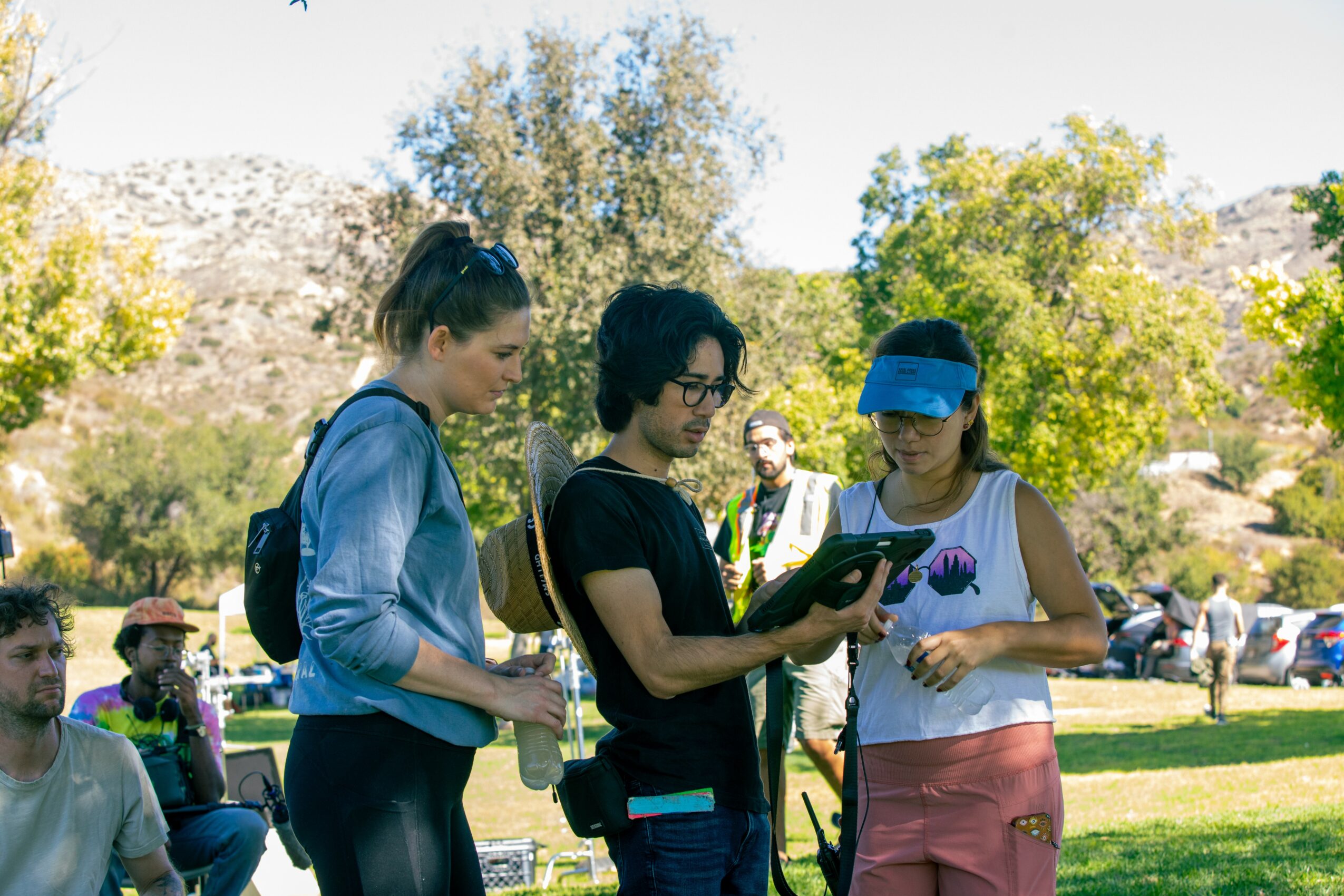
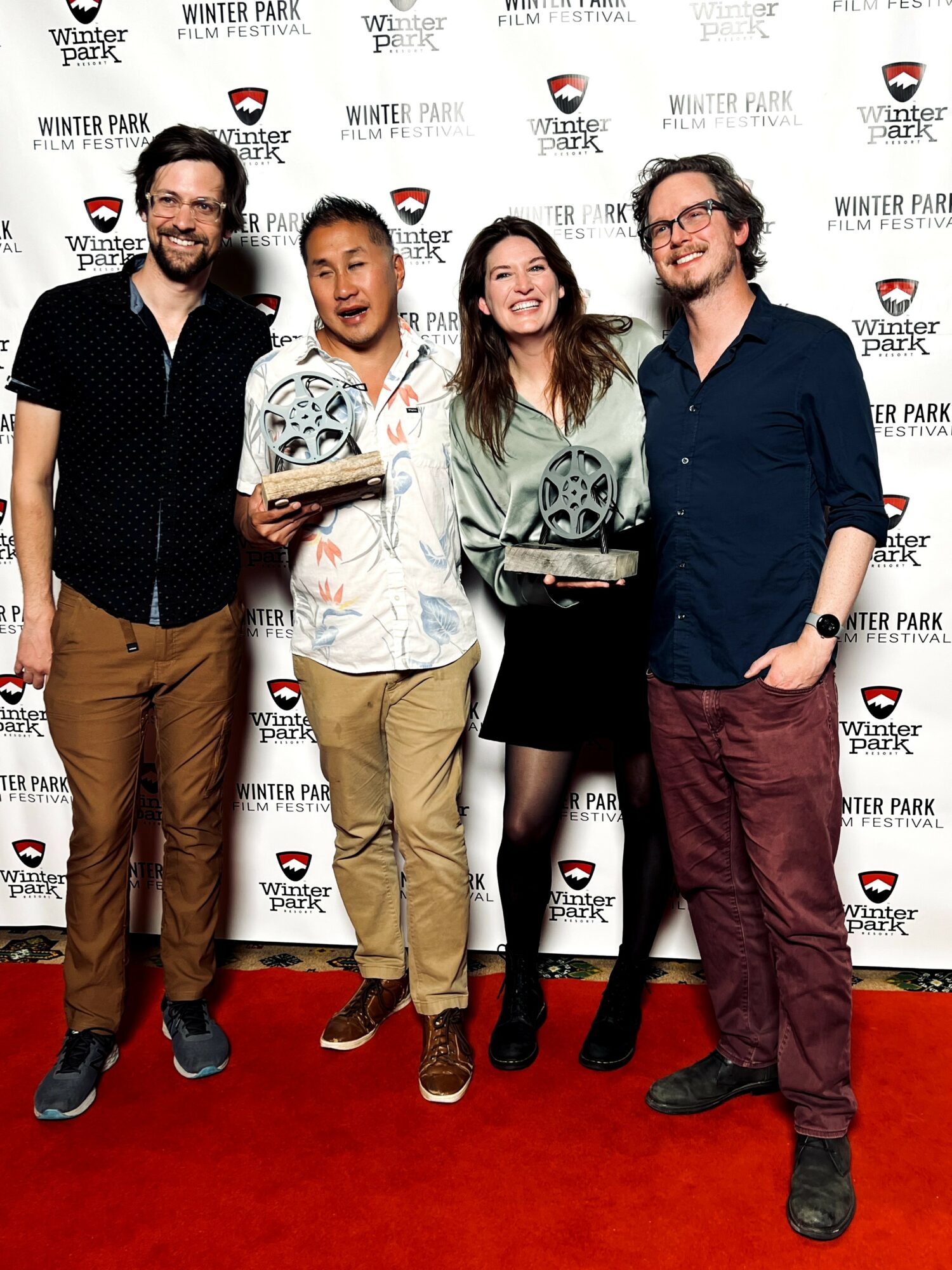
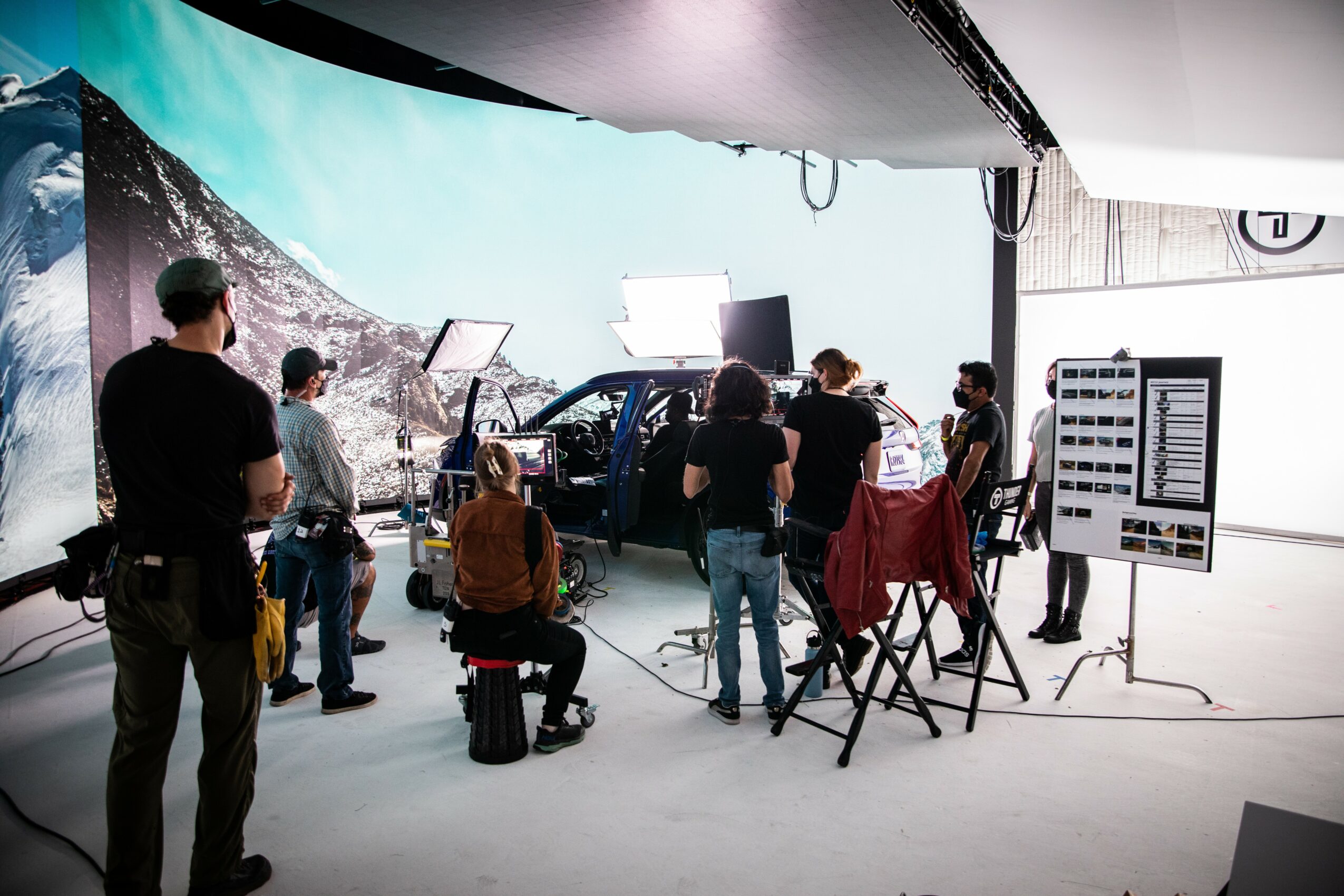
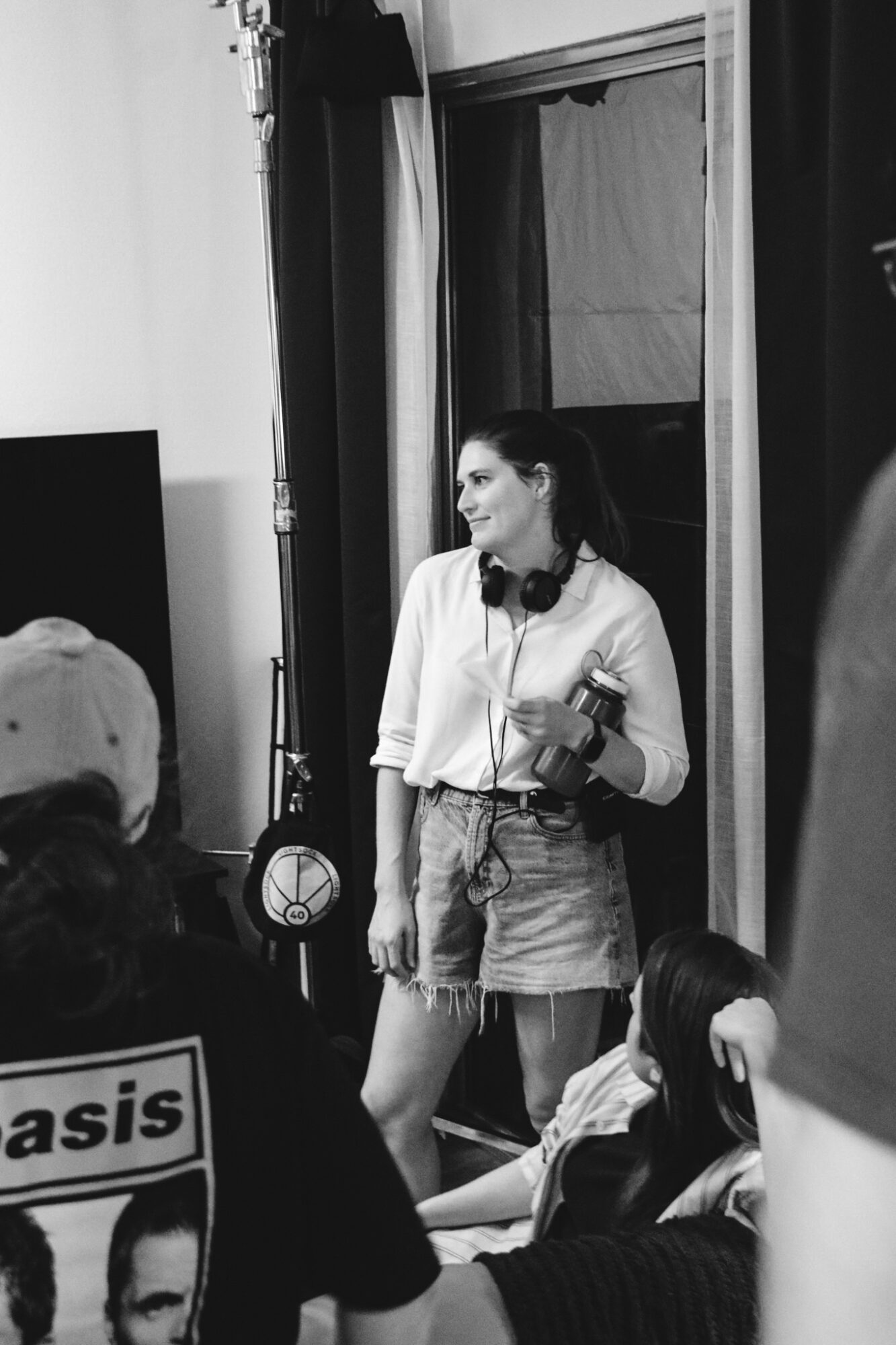
Image Credits
Christopher Santiago
Molly Rangel
Jordyn Doyel
Heather Cox
Candela Rebot
Natalie DeBakker














